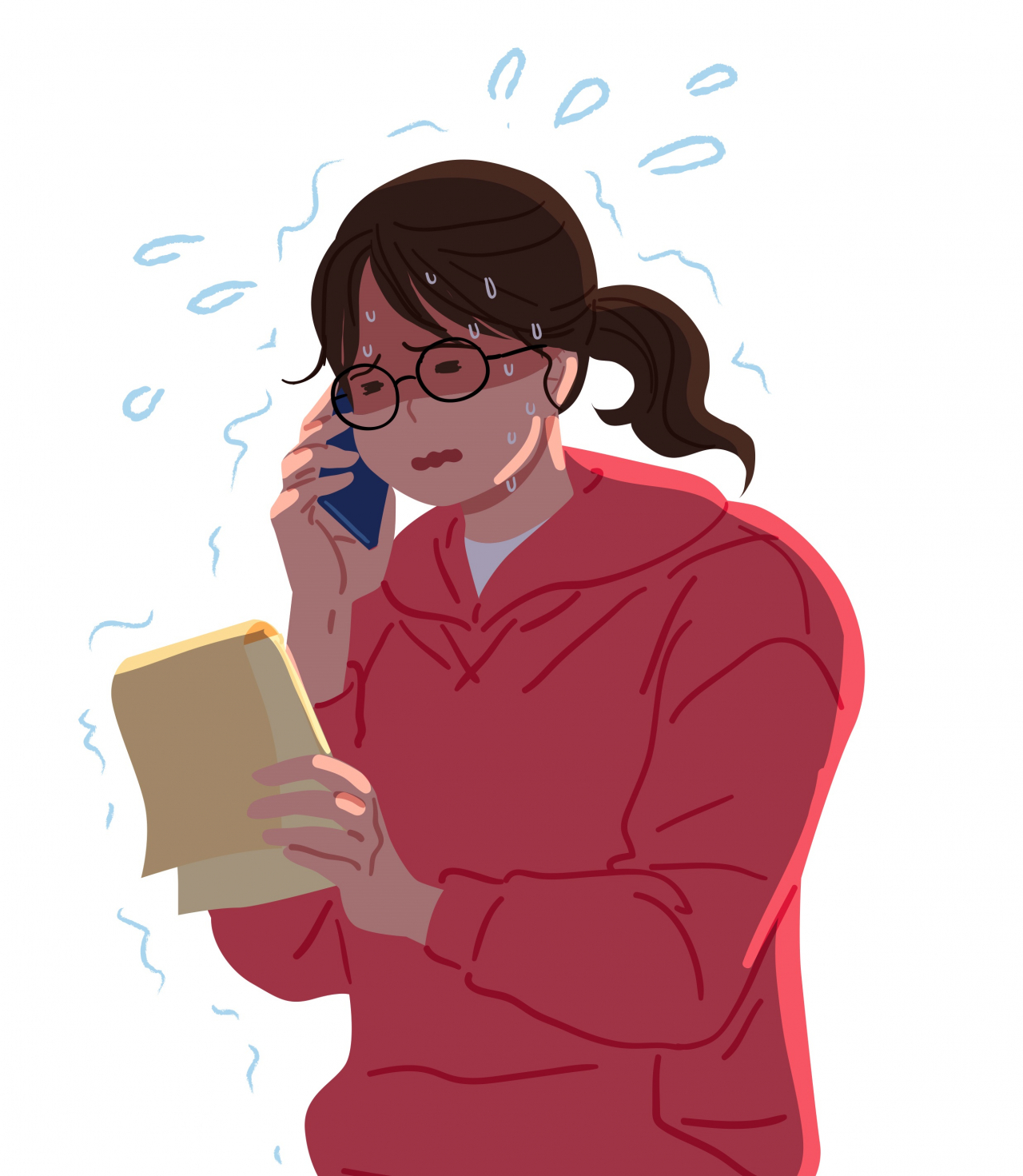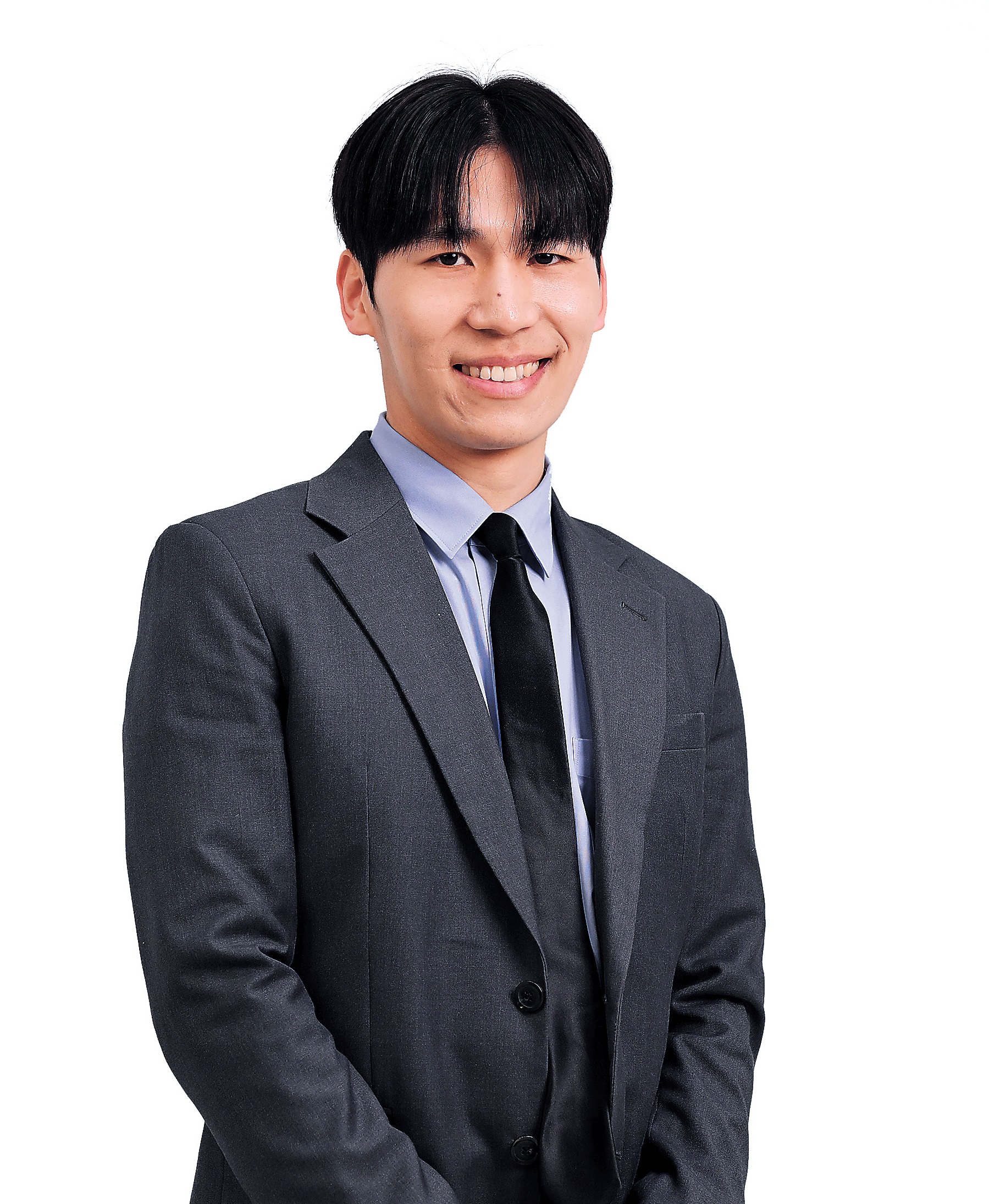Why young people have 'call phobia' and how to manage it
By No Kyung-minPublished : Aug. 1, 2023 - 16:02

A minute away from initiating a phone call with her landlord, Lee Hyun-jung, a 24-year-old college graduate, feels her heart racing and palms getting sweaty.
These all-too-familiar symptoms seem to arise when she has to make or receive a phone call, prompting her to avoid speaking on the phone whenever possible.
Phone anxiety, also known as call phobia or telephobia, is a form of social anxiety disorder observed in a growing number of people, particularly among those belonging to the so-called "MZ Generation" -- millennials and Generation Z born between the early 1980s to early 2010s.
"I rarely had opportunities to communicate with people on the phone since childhood," Lee told The Korea Herald. Text messages via chat apps are the predominant way for her to engage in social communications, she added.
Psychology professor Lim Myung-ho from Dankook University said young people have become particularly susceptible to this type of anxiety over the years.
A survey conducted in 2022 by the local research group Embrain, which polled 1,000 individuals, found that the highest percentage of respondents experiencing mental pressure before making phone calls were in their 20s at 43.6 percent, followed by those in their 30s at 36.4 percent. Figures for those in their 40s and 50s were 29.2 percent and 19.6 percent, respectively.
The survey also revealed that approximately 60 percent of respondents in their 20s and 30s preferred texting as their primary mode of communication, with only 14.4 percent of those in their 20s and 16 percent in their 30s opting for phone calls.
When asked for the reason for preferring text, Lee said, "I worry about making mistakes when speaking on the phone. While I can easily revise text messages, I have to be extremely careful not to say anything that might sound impolite or foolish."
For an office worker surnamed Jeon in her 20s, the thought of being on the phone makes her feel uncomfortable, as she feels compelled to respond quickly.
“Unlike text messaging, I don’t have much time to arrange my thoughts during phone calls, which often leads me to stutter or sputter out random things to fill the silence,” she said.
“I have significantly improved my speaking skills by frequently making and receiving phone calls at the office. Yet, I still rely on writing short scripts and anticipating questions to reduce panic during calls,” she added.
Explaining why voice communication induces more stress, professor Lim points out that texting is a less emotionally charged format than speaking, as the voice carries one's emotions.
“Many people in their 20s and 30s struggle when dealing with direct and spontaneous emotions conveyed through talking on the phone because they are more accustomed to communicating through text messages,” he said.
The daunting nature of phone conversations can also be attributed to the communication being enacted solely through talking, without other social cues such as body language and facial expressions, he explained.
As a way to combat phone anxiety, Lim calls for acknowledging one's insecurities and gradually exposing oneself to phone calls in a variety of social settings over a long period of time.
“I recommend having conversations on the phone with people you are close to regularly and preparing scripts beforehand if calling is too stressful,” Lim said, adding, “Phone anxiety should be better dealt with, especially in the workplace, where effective communication skills are of utmost importance.”
Furthermore, for alleviating phone anxiety, Shin You-ah, a speech director at U Speech, a private speech improvement institution, offers both mental and physical treatment.
“Firstly, creating a new mindset is important. If you feel nervous about making phone calls, you need to stay calm and eliminate fear by recognizing that phone calls will not have serious repercussions,” Shin said.
“We also help students practice diaphragmatic breathing, through which they not only calm their mind but also deepen and stabilize their voice,” Shin said.
She further stated, “In the face of unexpected calls, they should answer and politely ask for time to call back, organizing their thoughts and reducing anxiety in the meantime.”
Both Shin and Lim emphasized the importance of listening to and becoming aware of one's own voice as a way to manage the phobia.



















![[Today’s K-pop] Treasure to publish magazine for debut anniversary](http://res.heraldm.com/phpwas/restmb_idxmake.php?idx=642&simg=/content/image/2024/07/26/20240726050551_0.jpg&u=)